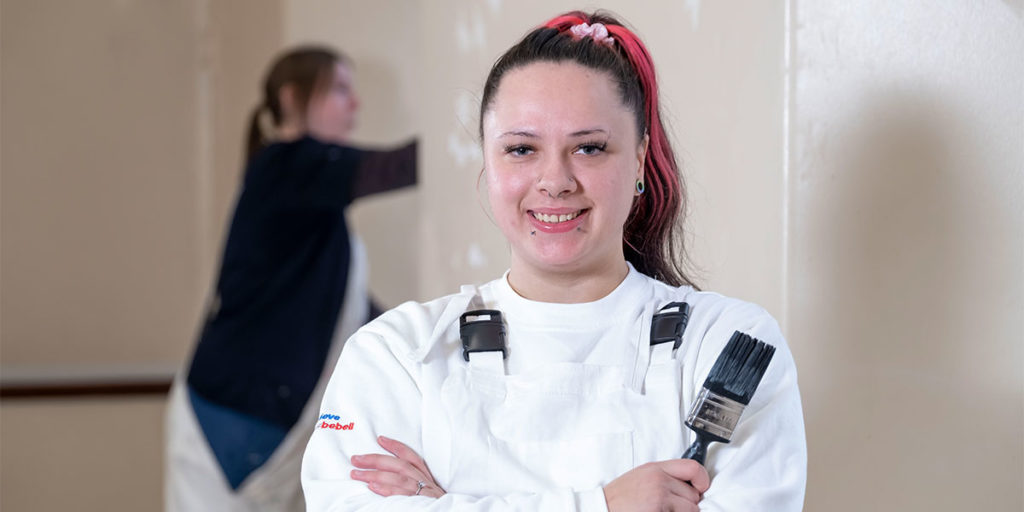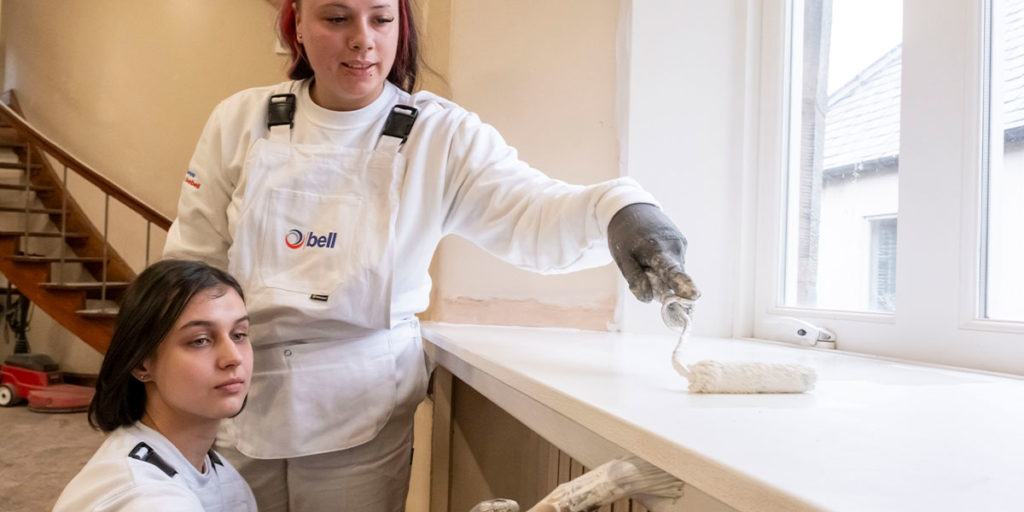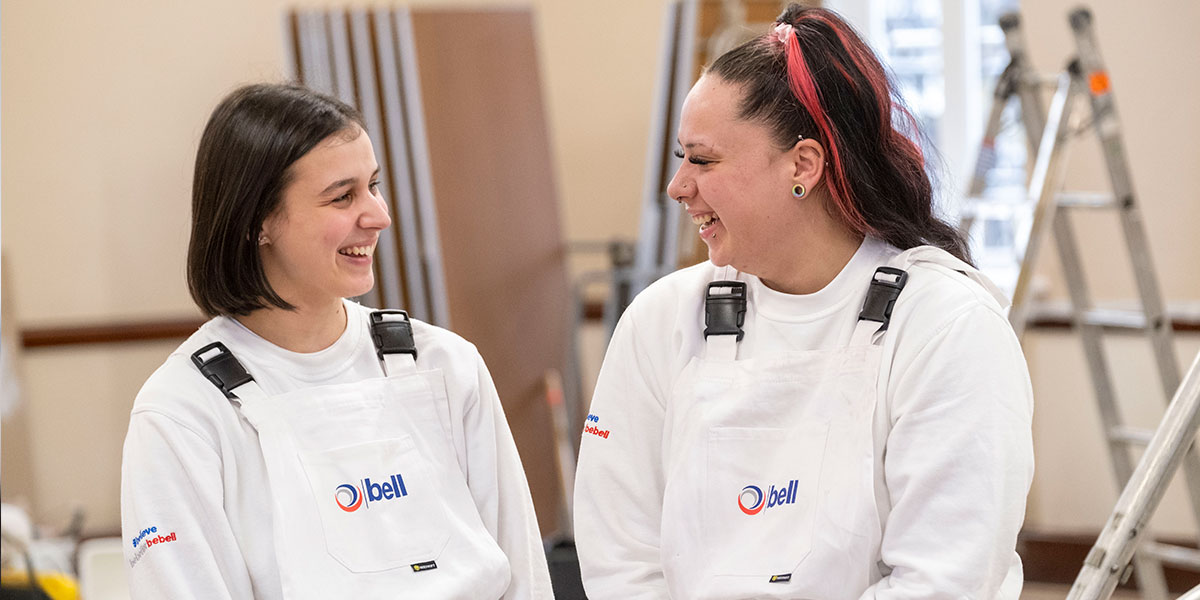Modern apprenticeships give young people the opportunity to gain experience and valuable skills in the workplace and develop their knowledge while earning valuable SQA qualifications, while getting paid. They support sustained employment and upskilling, as well as opening up opportunities for people from diverse backgrounds and abilities to gain skills that will support them throughout their life and in work.
SQA qualifications, specifically Scottish Vocational Qualifications (SVQs), are an integral part of most modern apprenticeships. These well-respected vocational qualifications meet the required National Occupational Standards outlined by a host of industries. This ensures that the skills young people develop during their apprenticeship meet employers’ needs, and that the young people themselves are work-ready and able to accurately demonstrate the skills, knowledge, and experience that they have developed during their training.
Bell Group’s apprenticeship programme
Bell Group (also known as Bell) is a property services contractor with branches all over the UK. They offer apprenticeships in 12 areas, including Painting and Decorating, Plastering, Quantity Surveying, and Property Maintenance. Its recruitment process encourages a wide range of applicants, including those from disadvantaged and under-represented groups, supporting its vision to attract diverse talent and create a culture that promotes inclusion.
As an approved SQA centre, Bell delivers its Painting and Decorating Apprenticeships in-house at sites across Scotland. While they’re at work, Bell apprentices will complete an SVQ in Painting and Decorating at SCQF level 6, including units covering wallpapering, paint marbling effects, and health and safety.
We spoke to Kirsten and Cassidy, two modern apprentices at Bell undertaking the Painting and Decorating Apprenticeship, to find out more.
Kirsten’s story

“My apprenticeship mainly consists of being on-site, working day-to-day with a tradesman who trains me on the job in things like painting and wallpapering. One week a month I go to college, where they teach me specific skills like decorative effects and marbling, as well as theory-based work.
“My favourite part of doing my apprenticeship is the variety of places I can work. Before starting at Bell, I had two jobs where I was in a building with no windows for hours at a time, so being able to work outside is a huge plus! My plan for the future is to progress in the decorative and artistic side of the trade, such as murals and sign writing.
“I really enjoy this apprenticeship. I struggle with book-based learning so having a hands-on job like this allows me to enjoy learning as I go.”
Cassidy’s story

“A typical day for me begins at 7:30am on site, where there isn’t really a standard day! I can be doing anything from priming windows and wallpapering ceilings to woodworking and painting.
“I love the variation of things I’m able to do in this apprenticeship. At college I’m doing everything from woodworking and metalwork to painting. In woodwork, we’ve been working on prepping of wood, staining, varnishing, and filling.
“The completion of the apprenticeship and SVQ involves practical and theory tests, which I complete as I go. I hope to continue working in this trade and would love to train others like me in the future.”

Dr Gill Stewart, Director of Qualifications at SQA says, “SQA vocational qualifications are part of nationally recognised apprenticeships frameworks, meaning they are valuable to people across the country.
“The flexibility of our qualifications allows for innovative delivery approaches that can be tailored to meet the individual needs of both apprentices and employers. Employers can take on the responsibility of developing their own people; providing learning opportunities alongside on the job training.”
Beneficial for business
Hiring apprentices is not only beneficial to the apprentices themselves, but to the businesses employing them.
Julie Lawrenson, Head of Learning and Development at Bell explains, “Whether it’s upskilling an existing employee or recruiting new talent, apprenticeships have the power to give businesses a competitive edge. Employing an apprentice is a productive and effective way to grow talent and develop a motivated, skilled and qualified workforce.
“Apprentices are motivated to learn and over time, will enable vitals skills that are relevant to your business. Apprentices also introduce creativity to a business by bringing a wealth of new ideas and can help employers address skills gaps and future sustainability plans.
“Bell have been investing in apprentices for over 35 years and have evidenced the value that training and developing apprentices has brought to our business. One of the most significant benefits of apprenticeships, for employers and staff alike, is that they enable opportunities to those from under-represented groups, promoting inclusivity, improving organisational culture and bringing new perspectives to our teams.”
For further information on the SQA qualifications that underpin Modern Apprenticeships, Foundation Apprenticeships, and Graduate Apprenticeships, visit www.sqa.org.uk/apprenticeships.







